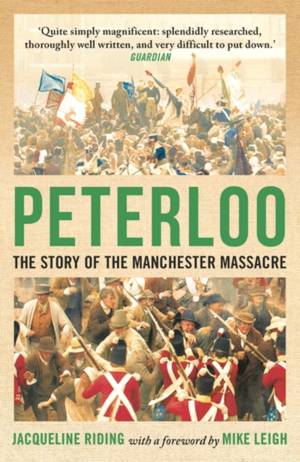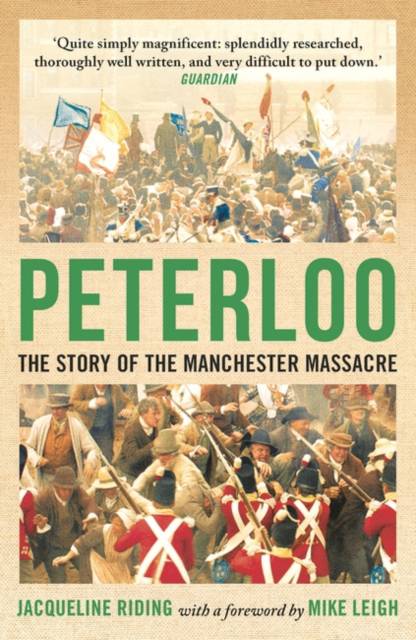
- Afhalen na 1 uur in een winkel met voorraad
- Gratis thuislevering in België vanaf € 30
- Ruim aanbod met 7 miljoen producten
- Afhalen na 1 uur in een winkel met voorraad
- Gratis thuislevering in België vanaf € 30
- Ruim aanbod met 7 miljoen producten
Omschrijving
On a hot late summer's day, a crowd of 60,000 gathered in St Peter's Field. They came from all over Lancashire--ordinary working-class men, women, and children--walking to the sound of hymns and folk songs, wearing their best clothes and holding silk banners aloft. Their mood was happy, their purpose wholly serious: to demand fundamental reform of a corrupt electoral system.
By the end of the day 15 people, including two women and a child, were dead or dying and 650 injured, hacked down by drunken yeomanry after local magistrates panicked at the size of the crowd. Four years after defeating the "tyrant" Bonaparte at Waterloo, the British state had turned its forces against its own people as they peaceably exercised their time-honored liberties. As well as describing the events of August 16 in shattering detail, Jacqueline Riding evokes the febrile state of England in the late 1810s, paints a memorable portrait of the reform movement and its charismatic leaders, and assesses the political legacy of the massacre to the present day.
As fast-paced and powerful as it is rigorously researched, Peterloo: The Story of the Manchester Massacre adds significantly to our understanding of a tragic staging-post on Britain's journey to full democracy.
Specificaties
Betrokkenen
- Auteur(s):
- Uitgeverij:
Inhoud
- Aantal bladzijden:
- 400
- Taal:
- Engels
Eigenschappen
- Productcode (EAN):
- 9781786695840
- Verschijningsdatum:
- 1/11/2019
- Uitvoering:
- Paperback
- Formaat:
- Trade paperback (VS)
- Afmetingen:
- 129 mm x 198 mm
- Gewicht:
- 276 g

Alleen bij Standaard Boekhandel
Beoordelingen
We publiceren alleen reviews die voldoen aan de voorwaarden voor reviews. Bekijk onze voorwaarden voor reviews.











